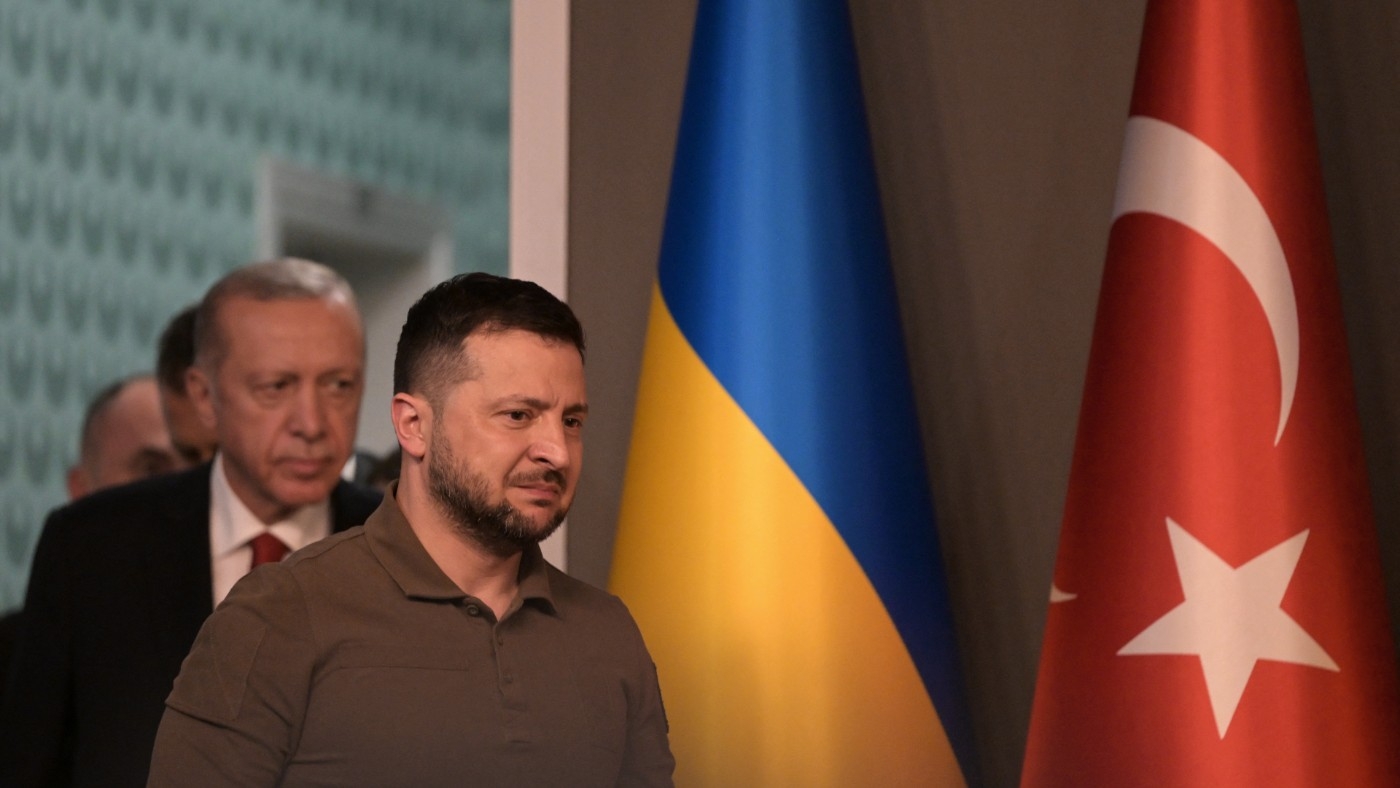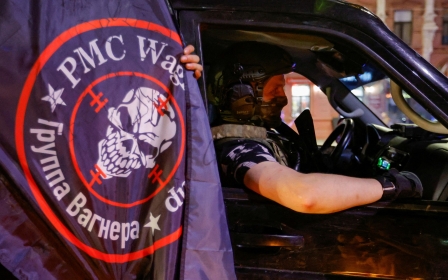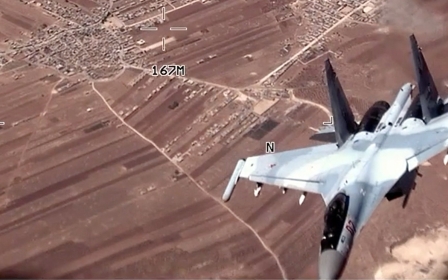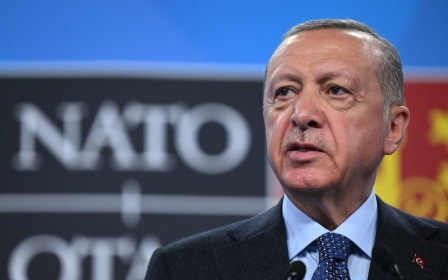Erdogan tells Zelensky Ukraine deserves Nato membership

Turkish President Recep Tayyip Erdogan has backed Ukraine's bid to join Nato, following a meeting in Istanbul with his Ukrainian counterpart, Volodymyr Zelensky.
Zelensky's visit to Turkey on Friday was part of a tour of other Nato nations ahead of the North Atlantic alliance's two-day summit next week, at which the Ukrainian president hopes to get clarity on his country's bid to join.
At a televised press conference on Saturday morning, Erdogan said that "Ukraine deserves Nato membership with no doubt". But the Turkish leader also said he would be hosting Russian President Vladimir Putin in August.
Ukraine applied to join Nato last September, seven months after Russia launched its invasion of the country. The alliance has as its bedrock a commitment to mutual defence, which means that, if Ukraine were admitted as a member, Nato would be pulled into an active war with Russia.
In an interview to be broadcast by CNN on Sunday, US President Joe Biden said that he did not think "there is unanimity in Nato about whether or not to bring Ukraine into the Nato family now, at this moment, in the middle of a war".
New MEE newsletter: Jerusalem Dispatch
Sign up to get the latest insights and analysis on Israel-Palestine, alongside Turkey Unpacked and other MEE newsletters
The meeting between Erdogan and Zelensky has been keenly observed in Russia, with the Kremlin saying it had appreciated the Turkish leader's efforts to mediate a resolution to the war.
Turkey, a Nato member, has managed to retain cordial relations with both Russia and Ukraine over the past 16 months of the war and last year helped to broker prisoner exchanges, which both Zelensky and Erdogan said would be one of the key topics of conversation when the Turkish president met with Putin.
Turkey has not joined its western allies in imposing economic sanctions on Russia, but has meanwhile supplied arms to Ukraine and called for its sovereignty to be respected.
Erdogan also said on Saturday that he was pressing ahead with efforts to extend the Black Sea grain deal by at least three months. The deal brokered last year by Turkey and the United Nations allows Ukrainian ships carrying grain to leave port and cross the Black Sea to global markets safely.
'Ukraine deserves Nato membership with no doubt'
- Turkish President Recep Tayyip Erdogan
"Our hope is that it will be extended at least once every three months, not every two months. We will make an effort in this regard and try to increase the duration of it to two years," Erdogan said at the joint news conference with Zelensky.
Both leaders said they had discussed raising the issue of prisoner exchanges for Erdogan's talks with Putin.
"We are working on the return of our captives, political prisoners, Crimean Tatars," Zelensky said, referring to members of Ukraine's Muslim community in the peninsula annexed by Russia in 2014. "Our partners have all the lists. We are really working on this."
According to Reuters, Erdogan said the topic could also come up in his contacts with Putin before his visit. "If we make some phone calls before that, we will discuss it on the call as well," he said.
Cluster bombs pledge
The meeting in Istanbul took place against the backdrop of a controversial US pledge to provide Ukraine with cluster bombs. The weapons are banned across large parts of the world, but not in Russia or Ukraine.
The bombs open in the air, releasing smaller ammunition, or "bomblets", that go on to be dispersed over a large area and are intended to destroy or neutralise multiple targets at once.
They can be launched from the ground or dropped onto targets from the sky. Some of the bomblets could end up not detonating, effectively turning them into land mines that can explode long after the conflict has ended.
The munitions have been used by Russian and Assad government forces in Syria, by the Saudi and UAE-led coalition in Yemen, by the United States in Iraq and Afghanistan, and by Israel in Lebanon.
Zelensky, whose recent tour of Europe was aimed at securing better weapons supplies, has called the decision to provide his forces with the bombs "timely, broad and much-needed", while Biden referred to it as a "very difficult decision".
The US president said that he acted because "the Ukrainians are running out of ammunition".
British Prime Minister Rishi Sunak has said his country "discourages" the use of the munitions, while Spain criticised the move.
More than 9,000 civilians, including over 500 children, have been killed since Russia's 24 February 2022 invasion, the UN's Human Rights Monitoring Mission in Ukraine said in a Friday statement. The real figure is thought to be much higher.
Middle East Eye delivers independent and unrivalled coverage and analysis of the Middle East, North Africa and beyond. To learn more about republishing this content and the associated fees, please fill out this form. More about MEE can be found here.





